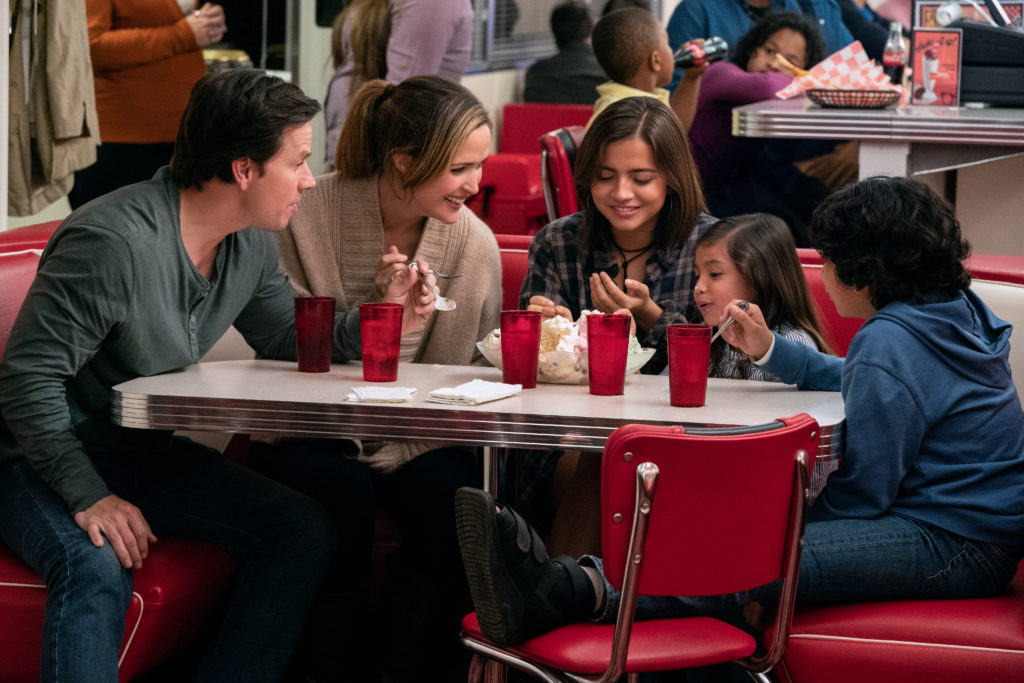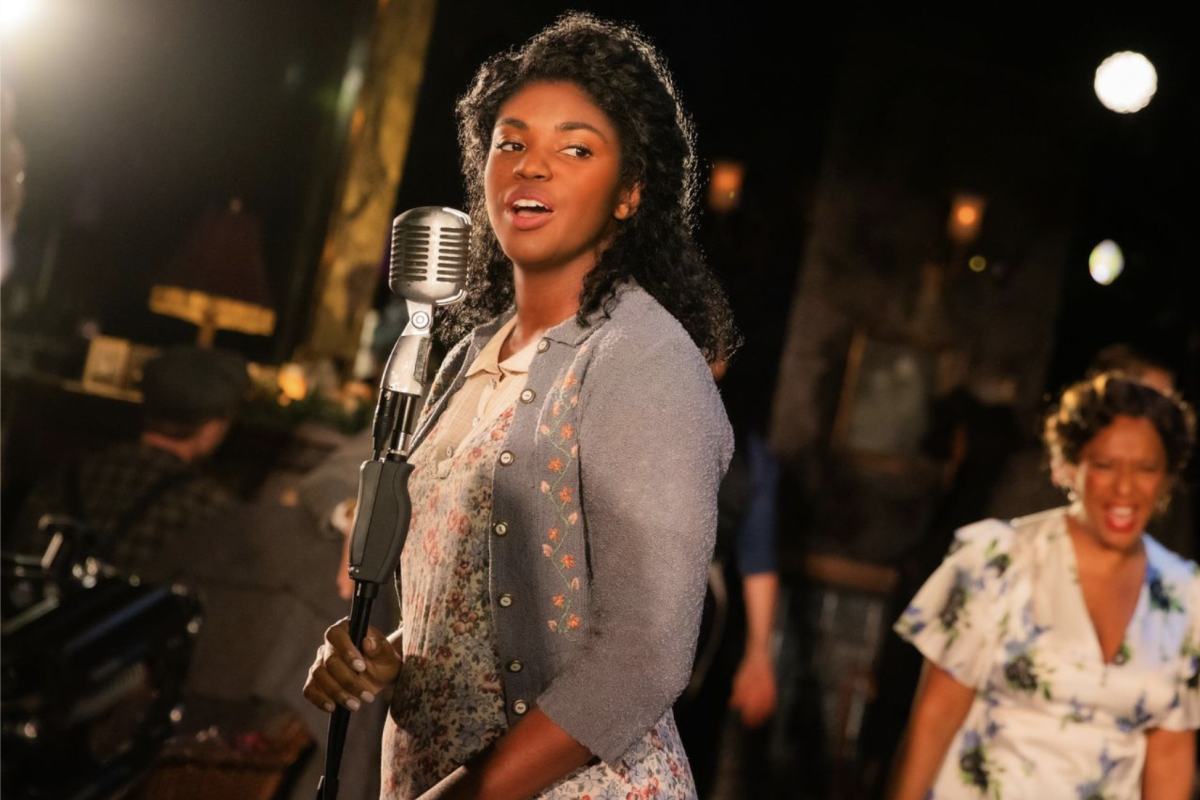By Ali Dusinberre, news correspondent
Heartwarming and comical, “Instant Family” depicts the touching story of one family’s journey through the foster care adoption system. The film, set to hit theaters on Nov. 16, is based on the experiences of writer and director Sean Anders and others who worked closely with the filmmakers to ensure a robust and realistic story.
Pete (Mark Wahlberg) and Ellie (Rose Byrne) enter the adoption process intending to take in one child. But, almost spontaneously they end up with a strong-willed teenage girl and her two younger siblings. The couple must navigate the process of parenthood in an unconventional fashion, running into obstacles both heart-wrenching and uplifting.
Isabela Moner puts on a compelling performance as 15-year-old Lizzy, a rebellious teenager reluctant to accept her new foster parents and relinquish hope that she and her siblings will eventually be reunited with their imprisoned birth mother. The two younger children are less averse to the couple, but bring their own set of complications. Juan is often absent-minded and hypersensitive and Lita, the youngest, is stubborn and prone to temper tantrums.
The movie balances comedy with raw emotion, presenting a dynamic set of challenges for each character. We watch Pete and Ellie struggle to connect with the kids and question if they’ve made a mistake by fostering them. We see Ellie’s anxiety as they attach to Pete more quickly than to her, and we watch threats to their family structure expose the deep love that grows between them all. We come to realize along with Pete and Ellie that Lizzy’s attitude, though resembling the typical teenager’s, is rooted in something deeper and more complex. And we laugh at the simpler situations, such as Juan and Lita’s excitement to play with the boxes containing their Christmas gifts rather than with the expensive toys inside.
At times, the film can border on cheesy. A couple of Wahlberg’s earlier lines seem forced and some scenes feel too staged, such as moments during the parent support group meetings when the room would break out into a sort of synchronized, uproarious laughter, or when a judge pulled out a speaker during a court scene and put on music, reminding me that I was watching a movie.
But despite these stereotypical feel-good movie moments, the film is ultimately a touching and honest representation of the experiences of both foster parents and foster children. At the movie’s core is humor and hope, a refreshing take given that the media often addresses foster children’s stories through tragedy and gut-wrenching drama, which largely perpetuates stigma against them.
Anders tells this story in a relatable way that, at the same time, is eye-opening for those to whom this sphere of life is foreign. The film brings laughter, tears and fresh insight into the world of foster care adoption.




















